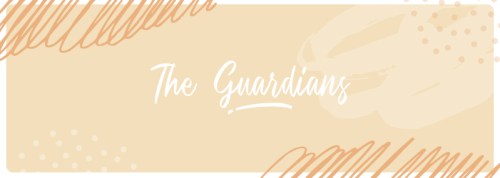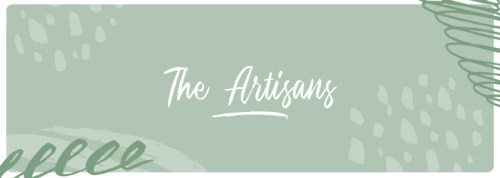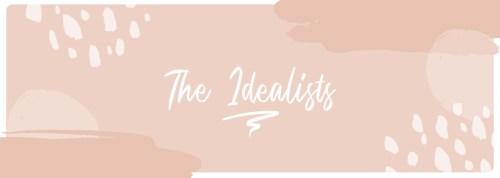The tell-tale signs you’re totally stressed out, according to your Myers-Briggs personality type
Spot these signs of stress—which vary according to your Myers-Briggs personality type—and you may be able to pump the brakes before you fully burn out.

Sudden health problems or unexpected trauma can spike stress levels in a heartbeat, but its build-up is more often slow-moving—and insidious. Stress can creep in when a project at work takes longer than anticipated, when your schedule fills up with obligations instead of fun dates, or when you haven’t had time for self-care in…you’re not even sure how long. And depending on your Myers-Briggs personality type, your response to this pile-on will vary.
If you recognize yourself behaving in any of the following ways, it may be time to focus on stress relief, self-soothing, and activities that fill your cup instead of leave you parched. (And if you haven’t figured your type out yet read this then head back.)
Keep reading for personality-based signs that stress may be infiltrating your life.

ISFJ
ISFJs under stress *need* their routine. You want to follow rules and guidelines to the letter, and stick to the status quo. You won’t want to ruffle feathers by speaking up at work, and may even pretend problems in your relationships aren’t as big a deal as they really are. You may also find yourself disengaging with friends and spending too much time solo.
If you’re stressed for too long: You may start to behave uncharacteristically. You may make changes to your life or routines that don’t make sense or want to explore every new idea you have, causing you to become distracted and feel spread too thin.
ESFJ
ESFJs will become extreme pleasers if under too much stress. You will seek to meet every request made of you without questioning it and become obsessed with making sure everyone has a positive opinion of you. You might also forget to stick to the routine that typically helps you stay focused—and feel less stressed.
If you’re under stress for too long: You’ll begin to overanalyze. You might become too focused on details and entirely resistant to emotional inputs, which you typically integrate so well while working toward goals.
ESTJ
ESTJs will become very critical, bossy, and easily frustrated under too much stress. But in your attempts to control, you’ll forget to create the plans and routines that lead to the best results. You won’t remember precedents, doing just for the sake of moving. You will find yourself working hard, but not smart.
If you’re under stress for too long: You may begin to brood. You’ll be focused a lot on how you feel—and what it means—instead of leaning into your logic, which is where you really shine. To break from the rut, focus on results, but through the lens of routines and structures that have helped you in the past.
ISTJ
A stressed out ISTJ will want to be told what to do. You’re great at following orders and sticking to routines, but you may find yourself taking this to an extreme. You won’t feel comfortable innovating. You will become rigid in your expectations, even though X + Y doesn’t always equal Z. You’ll also be more focused on being a cog in the engine than on the results of your efforts.
When you’re stressed for too long: You might find yourself breaking from routines without purpose. You may also start a bunch of projects and not finish them, or become obsessed with the meaning of your emotions.

ESTP
ESTPs who are stressed out will lean into their dominant function (extroverted sensing), which is all about living in the here and now. You may not want to plan for the future—or even for the next week. You’ll become focused on sensory indulgences like drinking, spending money carelessly, perhaps even “needing” new expensive toys, gadgets, cars, etc. You won’t think at all about consequences and will resist structure and authority.
If you’re under stress for too long: You’ll function counter to your normal operating mode. Instead of free-thinking and flexible, you’ll become overly focused on planning, paranoid about what could go wrong and totally single-minded. To break free, get out into the world again: Exercise or take a day trip while thinking of new goals or new ways to innovate.
ESFP
Stressed ESFPs will be self-indulgent. You’ll want to live in the moment, completely forgetting your routines and daily obligations. You might find yourself going out too much, compulsively spending money on that new expensive dress, or spontaneously traveling—and dragging friends into the mess of obligation-free living as well. (None of which is sustainable.)
If you’re under stress for too long: You might be caught up on what you “should” do. You won’t remember how to improvise in the moment. To break away from the habitual life, focus on exploring a passion without an agenda that will allow you to pursue an interest without a plan in mind for how it’ll play into your life long-term. That’s how you stumble on greatness.
ISTP
A stressed ISTP will become very insular. You’ll find yourself committed entirely to your own ideas or what you can prove, and not take others’ opinions into account. You might be overly rational, forgetting to account for improbabilities that might still affect outcomes, or highly unpredictable emotional variables. You might also overthink everything and thus spiral into a cloud of self-doubt.
If you’re under pressure for too long: You might find yourself defaulting to others. You might trust outside opinions more than your own, become visibly emotional, or feel way too sensitive to small criticisms.
ISFP
ISFPs are at home when they feel authentic, but they will take this idea too far while under stress. You may find you’re entirely resistant to others’ ideas, or you may lash out when someone tries to offer help or critique your work. When you’re weighed down by your feelings, it’s important to explore the physical universe: Gather evidence on your own, talk to others, read books that might interest you, and make sure you’re not hiding out in your own little bubble.
If you’re under stress for too long: You might become hyper-focused on checking boxes. You might clean your house from top to bottom (whether it needs it or not), create a five-year plan, or order others around—all things that are entirely at odds with the free-flowing and innovative state you project you’re feeling your best.

INFP
INFPs under stress will typically be dominated by feelings of individualism, causing them to focus 100 percent on their own goals and needs. You’ll likely want to work and complete projects alone and even avoid your friends and family. You might also be sensitive about your choices and lash out at those who criticize your approach in any way.
If you’re under stress for too long: You might enter “doer” mode and become totally focused on completing tasks. You might become uncharacteristically opinionated, order people around, or get entrenched in the step-by-step of a project. You’ll need to get in touch with yourself and what’s important to you in order to re-center yourself.
ENFP
ENFPs wilting under stress will be listless. You won’t know what to do with all your creative energy, so you’ll leave tasks unfinished and will try to solve everyone else’s problems. You’ll be firing on all cylinders and while you may even experience burnout, you won’t be able to stop your brain from humming.
If you’re under stress for too long: You’ll turn to classic self-soothing mechanisms. You might hide away from others, eat too much comfort food, listen to sappy music, and refuse to leave the house. The best thing to do is to explore possibilities again, by way of a project you’re passionate about—something that can also help you stay focused and feel accomplished while expending that creative energy.
ENFJ
ENFJs who are feeling the pressure will stop at nothing to please others. You’ll try to meet all your family’s needs, cure your friend’s sadness, cheer up your S.O., and complete all your extracurriculars and volunteer work without ever stopping to consider your own emotional well-being. Your intuition allows you to naturally read others and prioritize, but under stress, you lean into being everywhere for everyon, and don’t let your other strengths shine.
If you’re under stress for too long: You may end up overthinking all your interactions, being overly careful not to offend your friend without realizing it, playing it safe with your suggestions at work, and so on. Reading energy and feeling your way through things is your strength, not logically breaking down all the minutiae.
INFJ
INFJs’ dominant function is introverted intuition; you are guided by your gut, relying on your stores of acquired knowledge to interpret meaning in real life. When you’re under an abundance of stress, you’ll rely too much on your intuition for problem-solving, letting your highly attuned people skills and logic fall to the wayside. When you feel yourself stuck on an idea, unpack it. Why do you feel this way? If you can’t find a logical explanation, you might be under too much stress.
If you’re under stress for too long: You may also find yourself indulging—buying an expensive dress you don’t need, eating the whole cake, drinking all weekend, etc.

INTJ
INTJs under stress will become overly focused on a singular vision. Usually, this has to do with work or a key goal you want to accomplish. You’ll also be unable to accept help or input, thinking your way is the only way. While many believe you’re hard-nosed by nature, you’re actually very open-minded—a perceiving type. Be on the lookout for this receptive attitude to change: That’s when you need to reduce stress in your life.
If you’re under stress for too long: INTJs will indulge with sensory pleasures, like drinking, shopping, sex, or food.
INTP
An INTP under too much stress will become hyperlogical. You might withdraw from others, focusing entirely on rational solutions to problems without others’ inputs. You might find yourself becoming critical of opinions that focus too much on emotion, or even over-analyze situations and obstacles until you doubt yourself completely.
If you’re stressed for too long: You might start to feel totally unlike yourself: sensitive to others’ opinions, overly engaged with others’ feelings, hung up on details that don’t matter, and uncharacteristically emotional when provoked. You’ll need to start retraining your logical processes by focusing on new approaches.
ENTP
ENTPs under too much stress will want to pursue everything. You’ll fill up your social calendar, start a ton of new projects, and spend hours exploring every fascinating idea that comes to you. You might feel antsy, and perhaps even suffer from a tinge of insomnia. You may forget to logically prioritize and follow your typical routines, which help you make sure you’re carrying projects and tasks through to completion.
If you’re under stress for too long: You’ll find yourself seeking quiet, calm, and soothing things—whether that’s food, family, or staying home by yourself. This is totally counter to your typical operating mode.
ENTJ
Stressed ENTJs will focus heavily on getting things done, completing projects, and sometimes micromanaging at work or home. Instead of moving through problems step by step, using your intuition to guide you through inefficiencies and shortcuts, you’ll seem to hit every stumbling block and be running in place a lot. Try taking an extra beat before you start punching numbers on that spreadsheet, or give yourself breaks to visualize different ways the pieces on the chess board can be moved.
If you’re under stress for too long: You may begin to run solely off of your personal feelings, indulging whims, getting visibly agitated, or sulking.
Originally published June 5, 2018; updated September 14, 2018.
So now that you can spot the signs you may be stressed, here’s how to manage it based on Myers-Briggs. And your personality type can also used to understand your career path and your decor inclinations.
Sign Up for Our Daily Newsletter
Get all the latest in wellness, trends, food, fitness, beauty, and more delivered right to your inbox.
Got it, you've been added to our email list.








